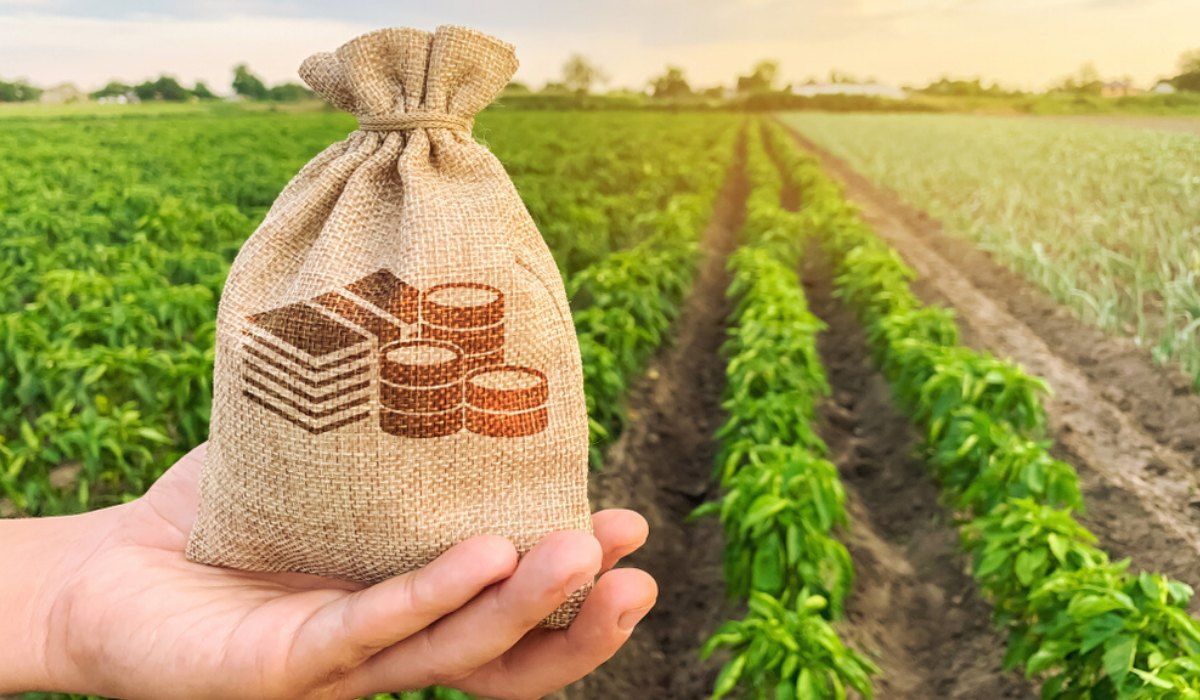JAMMU, MARCH 28: Jammu and Kashmir is predominantly agrarian with over 70 percent of the population directly or indirectly engaged in agricultural and allied sectors thus complimented with specific crop adapted to local climate and topography of the region.
The recently announced budget of Central Government for Jammu-Kashmir brings hope for agriculture sector which aims at doubling the farmers’ income in a planned manner. The strategy is to focus on encouraging the cultivation of High Yield AND High Density crops, use of modern technology and laboratory tested pesticides and other measures.
An amount of Rs 23.97 crore has been sanctioned for high yielding varieties of hybrid seeds which would benefit 8.93 lakh farmers. In addition, Rs. 55.80 crore have been kept separately for providing infrastructure facilities like 3200 pump sets, 898 bore wells and 10000 drip and sprinkler irrigation systems to farmers. It will benefit around 16960 farmers and will cover over 15240 hectares area.
Similarly, capacity building and training is another focused area prioritized in this budget. A total of 36000 farmers are to be trained for capacity building with a provision of Rs. 27 crore. Nearly, 22000 farmers would be benefitted with establishment of 11 big and small mandies with a provision of Rs 1.60 crore. Besides, 12800 farmers would be covered by way of formation of Farmer Producer Organizations (FPOs) with a financial assistance of Rs 80 Lakh.
The budget has also laid special focus on farm mechanization which is another area instrumental in transforming the agriculture sector which will help farmers to enhance their production manifold. About 33200 farmers would be provided farm machinery worth Rs 81 crore.
Considering the significance of organic farming in sustainable development, the budget has kept Rs 6 crore, under area expansion programme, for expansion of 756 hectares under organic farming, 45 hectares under potato and 250 hectares under spices which will benefit about 44204 farmers.
Due to erratic rains and long dry seasons, need for irrigation facilities are imminent and in this budget the irrigation for 8670 hectare of land will be restored through maintenance of Field Channels for which Rs 30 crore have been kept in this budget.
Horticulture is one of the major sectors in Jammu and Kashmir which contributes significantly towards economy of the Union Territory. The variety of horticultural products of J&K has earned worldwide fame because of its good quality and taste. The fruit crops grown here like apple, almonds, walnuts, pears, cherries and apricots in temperate areas and mango, citrus, litchi, papaya, guava etc in subtropical areas are known all over the globe.
The UT’s Horticulture industry is showing steep progress as the yearly pay produced by the natural product industry has gotten over Rs 10,000 crore, contributing 8% to Gross State Domestic Product (GSDP). About 7.5 lakh families of around 35 lakh souls are associated with this area.
The government of J&K in collaboration with National Agricultural Cooperative Marketing Federation (NAFED) is undertaking High Density Plantation over an area of 5500 hectare in next five years. Accordingly, a new scheme on High Density Plantation was launched in March, 2021 which apart from apple also included other crops being grown in J&K.
While Controlled Atmosphere storage capacity of around 1.70 Lakh Metric Ton has been already established, another 30,000 Metric Ton is likely to be added by the end of the current financial year. Besides, 50, 000 Metric Ton Controlled Atmosphere storage capacity has been targeted for completion during 2022-23. The focus will be to reach a Controlled Atmosphere storage capacity of about 5 Lakh Metric Ton in next three years.
Keeping in view the fact that hailstorms have often destroyed fruit crops like apples and apricot, the government in this budget has kept a provision of providing subsidy on anti-hail net under PARVAZ scheme to tackle the issue of fruit crop damage. Also, the administration is providing subsidies for air transportation of identified perishable products under the PARVAZ scheme which is a market linkage support scheme essentially launched for shipment of perishable Agricultural and Horticultural products through air cargo. Under the initiative, subsidy will be provided on the air cargo charges through DBT mode.
The budget read that expansion up to an area of 400 hectare under High Density Plantation of apples and 1000 hectare under sub-tropical fruit plants has been targeted for 2022-23. A Mega High Density Plantation nursery over an area of 800 hectare at an estimated cost of Rs 12.30 crore for sub-tropical fruit plants is being established in Government sector at Chakroi, Jammu besides 10 High Density plantation nurseries in private sector have also been targeted for establishment in 2022-23.
The Government of India as well as the J&K government is keen to widen the growth of agriculture as well as horticulture sector which are vital sectors towards transforming lives of farming community. These sectors can transform the economy of the UT tremendously over the next decade by creating numerous job opportunities, reducing poverty and backwardness besides increasing the production to facilitate optimum economic growth in a peaceful and eco-friendly manner.
Discover more from The Kashmir Monitor
Subscribe to get the latest posts to your email.




